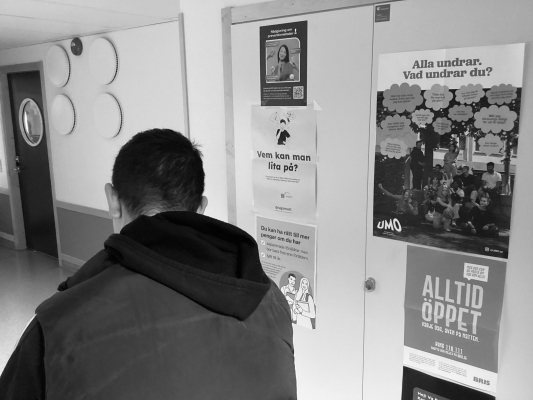Romania’s Youth at Risk: No Sex Education
By MIRCEA SCARLAT
Published 2025-09-30 13:39

In Romania, the absence of complete sexual education in schools has left many young people vulnerable to misinformation, unplanned teen pregnancies, and sexually transmitted diseases. Despite growing concerns from health experts and human rights institutions, efforts to introduce mandatory sex education face resistance from traditionalist groups. As the debate continues, the lack of structured education on sexual health remains a crucial issue with long-term consequences for Romania's youth.
Sexual education is an essential component of adolescent development, equipping young individuals with the knowledge and skills needed to make the right decisions about their sexual lives and general health. However, in Romania putting it into application has been a struggle, leading to a variety of bad outcomes.
In Europe, Romania takes the number-one spot in teenage pregnancies. Based on a 2021 UNICEF report, the country from the southeast of Europe has approximately 35-40 births per 1000 women aged 15-19, ranking second among adolescent mothers in the European Union. These should be some concerning numbers for the country's people, encouraging them to implement sexual education programs.
The major contributor to these high teen pregnancy rates is the lack of sexual education. A study published in 2022 uncovered the fact that this type of education is limited to just 1 or 2 hours at the age of 13-14. Because of this minimal exposure, adolescents are left to make regrettable decisions regarding their sexual health.
Despite it not being put to work, public support for sexual education is essential. A survey published by the Society of Contraceptive and Sexual Education (SECS) discovered that 77% of Romanians believe that schools should teach sex education.
The lack of sexual education is also connected to the absence of awareness about sexually transmitted infections. A 2024 study underlines that in Romania there is a low rate of HIV testing, an absence of data, and little to no budget assigned for prevention and treatment strategies in Romania.
 An illustration of a teacher guiding students through a sex education lesson in a classroom environment. Image: https://www.pexels.com/ro-ro/.
An illustration of a teacher guiding students through a sex education lesson in a classroom environment. Image: https://www.pexels.com/ro-ro/.
All of the efforts put into implementing sexual education are facing many cultural and religious obstacles. In 2017, these drawbacks were identified and they revealed that Romania is one of only eight EU states without a national sexual health education system.
To conclude, this sexual education deficiency in Romania has brought the country multiple public health concerns, such as high teen pregnancy rates and restricted knowledge about sexually transmitted diseases. Despite the powerful public support, cultural and religious differences continue to hold back progress. Solving these issues demands a lot of effort to enforce and normalize sexual education within the Romanian education system, making sure that adolescents are qualified to make informed decisions about their sexual health.
References: (1) Global Campus Open Knowledge Repository
Writers
|
13 Dec Pupil |
|
13 Oct Pupil |
|
13 Oct Pupil |
|
30 Sep Pupil |
|
30 Sep Pupil |
|
25 Jun Pupil |
|
16 Jun Pupil |
|
10 Jun Pupil |
|
10 Jun Pupil |
|
06 Jun Pupil |
|
06 Jun Pupil |
|
06 Jun Pupil |
|
05 Jun Pupil |
|
31 May Pupil |
|
28 May Pupil |
|
28 May Pupil |
|
25 Apr Pupil |
|
25 Apr Pupil |
|
25 Apr Pupil |
|
25 Apr Pupil |
|
25 Apr Pupil |
|
25 Apr Pupil |
|
11 Apr Pupil |
|
08 Apr Pupil |
|
17 Feb Pupil |
|
17 Feb Pupil |
|
17 Feb Pupil |
|
17 Feb Pupil |
|
31 Jan Pupil |
|
23 Jan Pupil |
|
16 Dec Pupil |
|
13 Dec Pupil |
|
13 Oct Pupil |
|
13 Oct Pupil |
|
30 Sep Pupil |
|
28 May Pupil |
|
28 May Pupil |
|
25 Apr Pupil |
|
25 Apr Pupil |
|
25 Apr Pupil |
|
25 Apr Pupil |
|
25 Apr Pupil |
|
25 Apr Pupil |






































